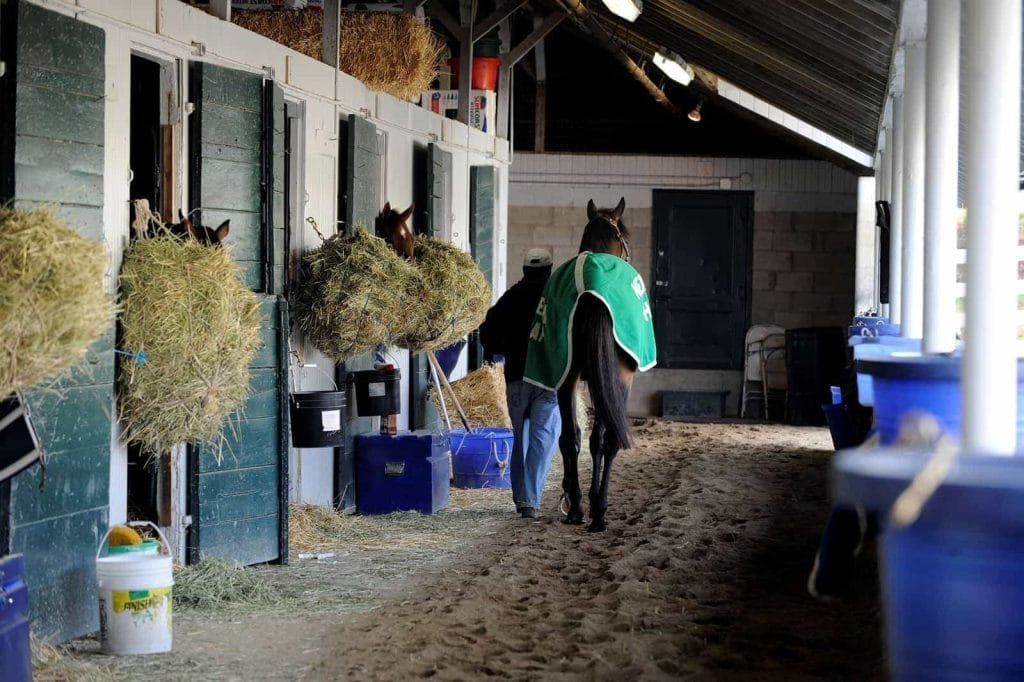Feeding racing horses requires careful attention to their unique nutritional needs to ensure peak performance and health.
Racing horses are athletes that need a diet tailored to their intense training and competition demands. comprehensive guide to the feeding materials suitable for racing horses:
Understanding Racing Horse Nutrition
Racing horses need a diet that supports their high energy demands, muscle development, and overall well-being. Their nutrition plan typically includes a balance of forage, concentrates, and supplements.
Forage
1. Hay: Quality hay is essential for providing fiber, which aids in digestion and overall gut health. Common types of hay for racing horses include:
- Timothy Hay: This is a popular choice due to its moderate energy and fiber content.
- Alfalfa Hay: Often used for its higher protein and calcium content, alfalfa hay can be beneficial for horses that need extra energy and muscle support.
2. Silage: Some racing horses benefit from feeding silage, which is fermented grass or legume. It is usually more energy-dense than hay but should be used carefully to avoid digestive issues. Ensure the silage is of good quality and free from mold or spoilage.
Concentrates
1. Grains: Grains are a major source of energy for racing horses. Common grains include:
- Oats: Highly digestible and a good source of energy, oats are often a staple in the diet of racing horses.
- Barley: Barley is another high-energy grain, often used to complement oats in the diet.
- Corn: Corn is energy-dense but should be fed in moderation to avoid digestive upset.
2. Commercial Feeds: Specialized commercial feeds formulated for racing horses are available. These feeds are designed to meet the specific nutritional needs of performance horses, including balanced levels of protein, vitamins, and minerals. Look for feeds that are high in digestible energy and support muscle development and recovery.
Supplements
1. Protein Supplements: Racing horses need higher protein levels for muscle development and repair. Common protein sources include:
- Soybean Meal: Rich in protein and amino acids, soybean meal is often added to racing horse diets.
- Lupins: These are another good source of protein and can be used as a supplement in some diets.
2. Vitamins and Minerals: Ensuring your horse gets the right balance of vitamins and minerals is crucial. Common supplements include:
- Electrolytes: To replace salts lost through sweating and support hydration.
- Vitamin E and Selenium: Important for muscle function and overall health.
3. Joint Supplements: Racing horses are prone to joint stress, so supplements containing glucosamine and chondroitin can be beneficial in supporting joint health.

Water
1. Fresh Water: Access to clean, fresh water is critical for racing horses. They can drink up to 10-12 gallons a day, especially when in training or competition. Ensure water sources are free from contaminants and regularly cleaned.
Feeding Guidelines
1. Quantity: The amount of feed depends on the horse’s size, weight, and workload. Racing horses typically need more energy-dense feeds compared to leisure horses. They may consume 2-3% of their body weight in concentrates and hay per day, adjusted according to their energy expenditure.
2. Timing: Timing of feed can be critical. Ensure horses have adequate time to digest their feed before training or racing. Typically, horses should be fed at least 3-4 hours before a race or intensive exercise to avoid digestive issues.
3. Pre-Race Feeding: A light, easily digestible meal a few hours before racing can help provide energy without causing discomfort. Avoid heavy feeds immediately before a race.
Special Considerations
1. Weight Management: Racing horses need to maintain an optimal weight. Monitor their body condition regularly and adjust feed quantities accordingly to ensure they are neither overweight nor underweight.
2. Dietary Adjustments: Horses in training may require adjustments to their diet based on their performance and recovery needs. Work with a nutritionist or veterinarian to tailor their feeding plan.
3. Health Monitoring: Regular health checks are essential to identify any nutritional deficiencies or issues early. Address any signs of poor performance, digestive problems, or weight loss with appropriate dietary adjustments.
Final Thoughts
Feeding racing horses involves providing a well-balanced diet that meets their high energy and nutritional needs. By focusing on quality forage, appropriate concentrates, and targeted supplements, you can support their training and racing performance. Regular monitoring and adjustments will help keep your racing horses in peak condition and ready for competition.




